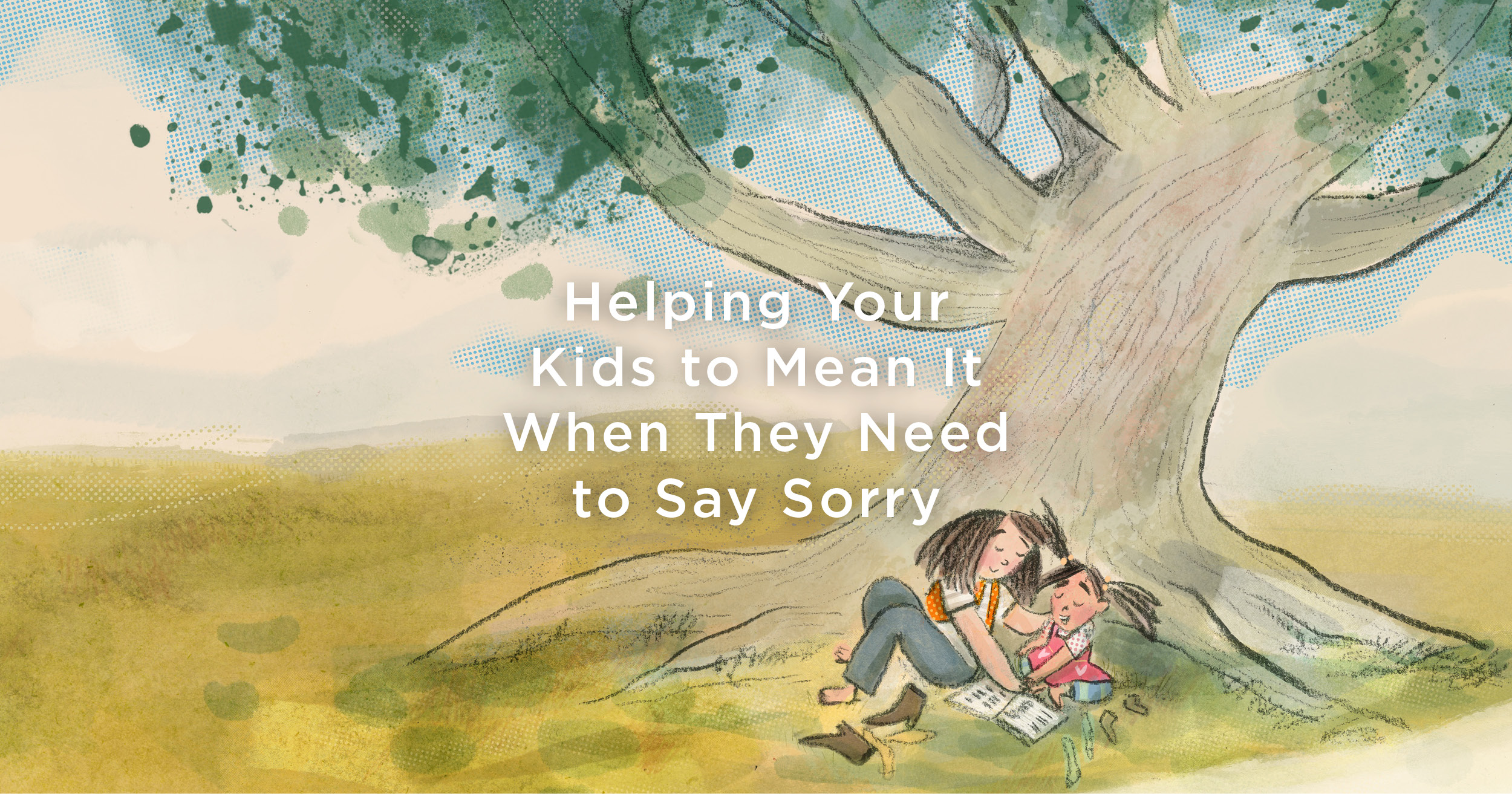
Parenting young children involves saying the same things over and over, on repeat:
Where are your shoes?
Be careful
Not until you’ve finished your food
I love you
Say sorry
That last one is necessary because, like us, our kids are sinners. Also like us, kids sometimes find “sorry” is the hardest thing to say.
But of course it’s not only that saying sorry is difficult. Meaning sorry—actually repenting, turning away from our self-centered sin, and turning to obey Christ as our King is the real challenge. It’s one thing to teach our children to say sorry—it’s quite another to help them repent. We need to get them beyond a surface-level sorry though,because the Lord Jesus’ call was “Repent and believe” (Mark 1:15), not “Say sorry and move on”.
In teaching kids what repentance is and encouraging them to repent themselves, I’ve found that a particularly helpful Bible passage is the story of Zacchaeus in Luke 19. Here are four ways to use Zacchaeus’ story to help kids learn not just to say sorry, but to mean it.
Children find abstract concepts harder to grasp than real-life examples. That’s why stories resonate with them. The story of Zacchaeus shows repentance. Here we have a man who wakes up one morning grasping money at the cost of breaking God’s laws but who finishes his evening giving away money in order to serve and obey God. Without ever using the word “repentance,” we’re seeing what it looks like in real life. In simply telling kids this story as a real-life example from the bible, we’re showing them that repentance is not just saying sorry—it’s changing our attitude and our actions.
It’s hard to teach our children to repent while not encouraging them to become little Pharisees who end up obeying God to earn or keep his favor. But using the story of Zacchaeus to teach children repentance keeps everything in its proper order.
Zacchaeus meets Jesus. He is amazed by the welcome of Jesus. He responds to Jesus’ love for him by repenting and living for him. And so our kids hear “King Jesus loves you, so repent and live his way” rather than “Repent and live King Jesus’ way so that he loves you.”
Ask kids why Zacchaeus changes as you read the story. Point out as needed that Zacchaeus doesn’t repent because he has to but because he wants to (Jesus doesn’t even tell him to do it!). He changes as a result of experiencing Jesus’ love and welcome, not in order to secure or maintain it. This establishes that the call to repentance is an invitation as well as a command.
Repentance is both the attitude of turning away from a rejection of God’s good rule and of turning towards God’s great King in loving obedience. It contains a negative aspect (I turn away from breaking God’s law) and a positive one (I turn towards obeying Jesus and pleasing him). That’s what we see so clearly and wonderfully in Zacchaeus.
Repentance is a whole lot more exciting (and biblical) when it’s about starting to love Jesus in how we live, rather than only stopping sinning in how we live.
As you read the story with kids, ask them what they see Zacchaeus turning from and turning towards. Help them see that he turns away from worshiping money and towards worshiping Jesus. He turns away from grasping his own gain sinfully and towards giving generously.
This helps us to teach our kids that repentance is not only “I want to stop snatching what isn’t mine” but “I want to share things that are mine.” Repentance is a whole lot more exciting (and biblical) when it’s about starting to love Jesus in how we live, rather than only stopping sinning in how we live.
Zacchaeus’ story is about a short, wealthy man climbing up a tree and then scrambling back down. How often do your children see a grown-up in expensive clothing climbing a tree by the side of the road?! Kids love that! How like our welcoming, joy-filled God to include in his word a true story that teaches our kids what grace-based biblical repentance looks like while also making them smile. Let that aspect of God’s character be part of the way you share this story of repentance with kids too.
Teach kids how to repent, treasure Jesus above everything else, and show kindness and generosity to others with the newest book in our Tales that Tell the Truth Series, The Man in the Tree and the Brand New Start by Carl Laferton.